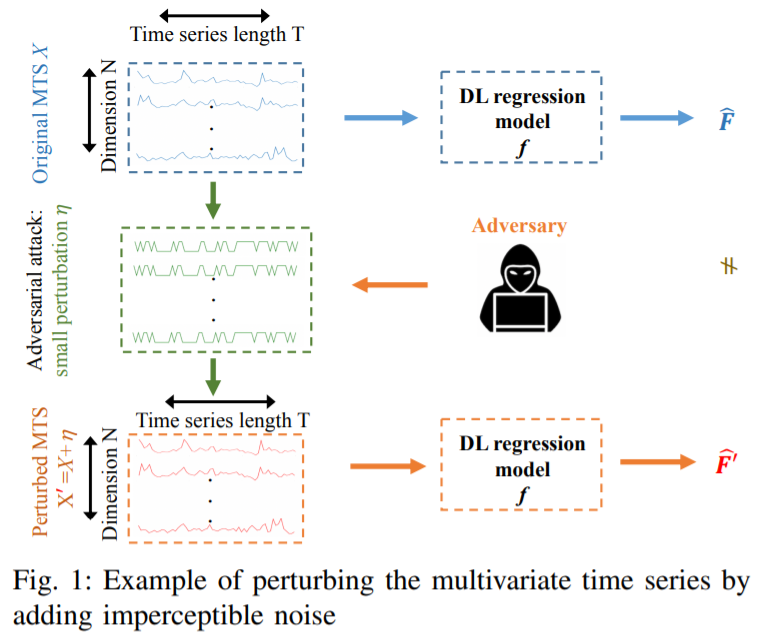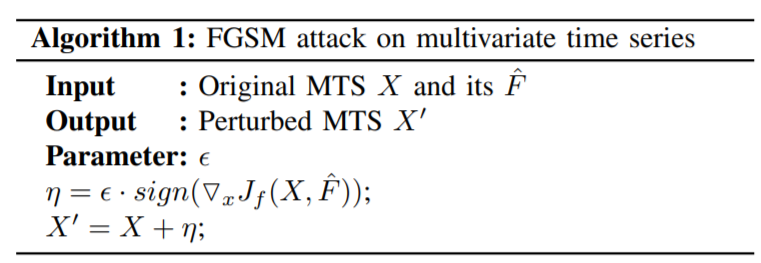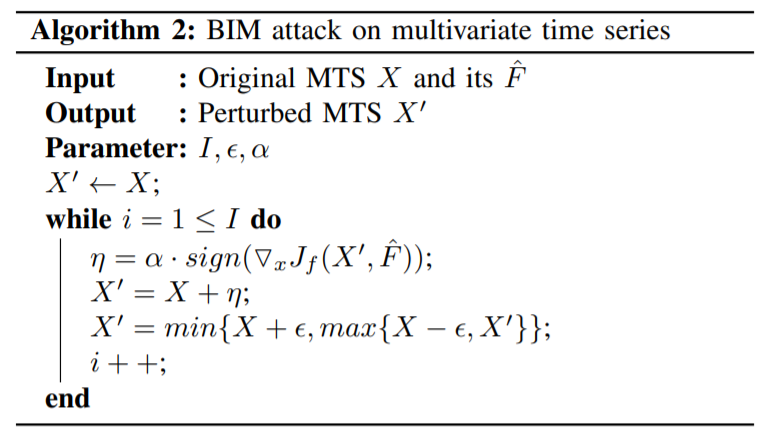Adversarial Examples in Deep Learning for Multivariate Time Series Regression (2020,9)
Contents
- Abstract
- Introduction
- Adversarial Examples for MTS
- Formalization of MTS regression
- FGSM & BIM
0. Abstract
Adversarial attacks
- DL algorithm : susceptibility to adversarial attacks
- no previous works related to TS
Craft adversarial MTS examples for 3 models
- CNN/LSTM/GRU
Test on..
- Google Stock & Household Power consumption dataset
1. Introduction
DL models can be easily fooled!
- by making small perturbations
Adversarial attacks
- usually in image recognition & classification
- but, not much on non-image task
This paper
-
apply & transfer “adversarial attacks” from image domain
to DL regression models for “MTL forecasting”
Main contributions
- 1) formalize adversarial attacks
- 2) crafting adversarial attacks for MTL using CNN/LSTM/GRU
- 3) study on 2 datasets
- data 1) finance
- data 2) energy domain

2. Adversarial Examples for MTS
(1) Formalization of MTS regression
\(X=\left[x_{1}, x_{2}, \ldots, x_{T}\right]\).
- \(T=\mid X\mid\) : length of \(X\)
- \(x_{i} \in \mathbb{R}^{N}\) :
- time : \(i\) , where \(i \in[1, T]\).
- # of dimension : \(N\)
\(D=\left(x_{1}, F_{1}\right),\left(x_{2}, F_{2}\right), \ldots,\left(x_{T}, F_{T}\right)\).
- data set of pair \(\left(x_{i}, F_{i}\right)\)
- \(F_i\) : label of \(x_i\)
\(X^{'}\) : adversarial example ( perturbed \(X\) )
- \(\hat{F} \neq \hat{F}^{\prime}\) & \(\mid \mid X-X^{\prime} \mid \mid \leq \epsilon\)
Regression Task & Cost function
- [regression] \(f(\cdot): \mathbb{R}^{N \times T} \rightarrow \hat{F}\).
- [cost function] \(J_{f}(\cdot, \cdot)\)
Box-constrained optimization problem
\(\begin{gathered} \min _{X^{\prime}} \mid \mid X^{\prime}-X \mid \mid \text { s.t. } \\ f\left(X^{\prime}\right)=\hat{F}^{\prime}, f(X)=\hat{F} \text { and } \hat{F} \neq \hat{F}^{\prime} \end{gathered}\).
(2) FGSM & BIM
FGSM (Fast Gradient Sign Method)

BIM (Basic Iterative Method)
-
extension of FGSM
-
BIM = FGSM x multiple times
-
with small step size
-
clipping after each step
( to ensure to become inside the range \([X-\epsilon, X+\epsilon]\) )
-

